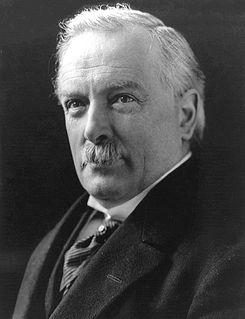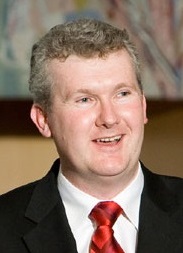A Quote by David Lloyd George
[Proportional representation is a] device for defeating democracy, the principle of which was that the majority should rule, and for bringing faddists of all kinds into Parliament, and establishing groups and disintegrating parties.
Related Quotes
The principle of majority rule is the mildest form in which the force of numbers can be exercised. It is a pacific substitute for civil war in which the opposing armies are counted and the victory is awarded to the larger before any blood is shed. Except in the sacred tests of democracy and in the incantations of the orators, we hardly take the trouble to pretend that the rule of the majority is not at bottom a rule of force.
I call government that works the best for people open society, which is basically just another more general term for a democracy that is - you call it maybe a liberal democracy. It's not only majority rule but also respect for minorities and minority opinions and the rule of law. So it's really a sort of institutional democracy.
No doubt, you've got a parliament now - I mean, Malcolm Turnbull says he'll work with the parliament he's got. He's got a parliament where a majority of the members of parliament want that law to be changed. He's got a parliament where there's a majority in each House who have publicly said they want to have a Royal Commission into banks.
In a really equal democracy, every or any section would be represented, not disproportionately, but proportionately. ... Unless they are, there is not equal government, but a government of inequality and privilege: one part of the people rule over the rest: there is a part whose fair and equal share of influence in the representation is withheld from them, contrary to all just government, but, above all, contrary to the principle of democracy, which professes equality as its very root and foundation.
There should be some other provisions in the Constitution whereby if the Government is not functioning well, it can be dealt with. In a parliamentary democracy, this should be done only by Parliament. The prime minister should be answerable only to Parliament and it should only be Parliament that can install him or remove him.
There are two kinds of systems in the world. There are many-party systems and there are two-party systems. And our English cousins, both England, Canada, Australia, India, tend to have majority rule elections, rather than proportional elections and that tends to lead them to have two sort of competing parties. So in England, you know, it's been, you know, since the '20's, that anybody other than Labor or the Conservatives have formed a government and gotten a Prime Minister in the Cabinet, and so on.
In many European countries we have populist indirect democratic systems. The people elect, in a proportionate manner, a parliament. The parliament with all its parties is representative of the political opinions among the citizens. It is reasonable to claim that the people rule itself through the political institutions.



































